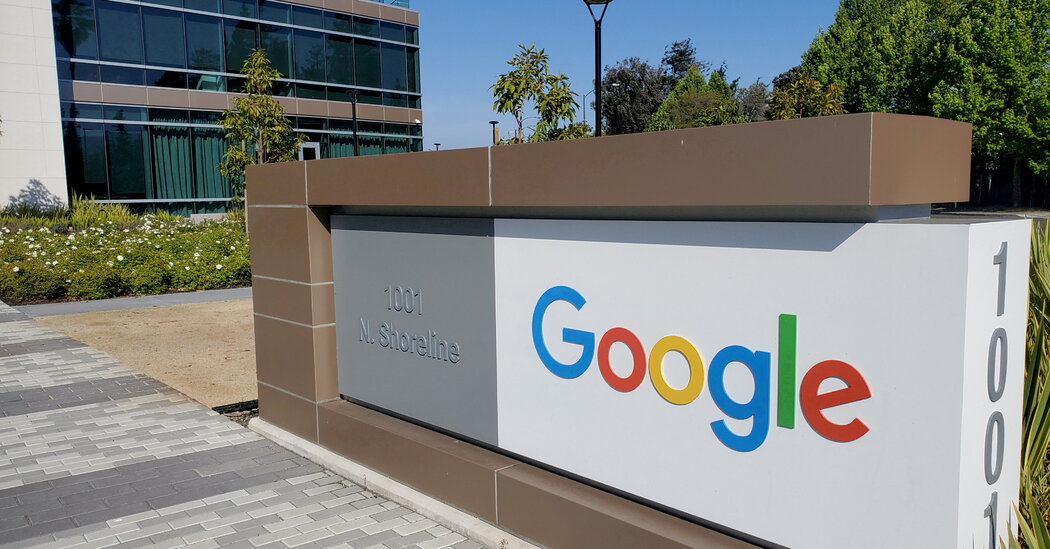WASHINGTON — Google on Monday agreed to a record $391.5 million privacy settlement with a coalition of 40 states attorney generals over allegations it misled users into thinking they had turned off location tracking in their account settings, while the company continued to do so. collecting that information.
As part of the settlement, Google will also make its location tracking disclosures clearer starting in 2023.
The attorneys general said the agreement was the largest internet privacy scheme by US states. It covered a four-year investigation into the internet search giant for violating the state’s consumer protection laws.
States have played an increasingly pivotal role in curbing the power and business models of Silicon Valley corporations amid a vacuum of action from federal lawmakers.
More than four years after Europe rolled out data privacy rules for its citizens, Congress and regulators have failed to agree on a federal data protection law in the United States. Lawmakers have bickered over details of privacy proposals, and tech giants have deployed armies of lobbyists to water down or destroy legislation.
In lieu of federal law, states including California, Colorado and Virginia have introduced their own privacy rules, creating a patchwork of rules that artificially begins and ends at state lines. State attorneys general have also controlled tech giants through lawsuits and have settled Google, Meta, Apple and Amazon or have taken active lawsuits over claims of antitrust violations, malicious speech, privacy violations and illegal labor practices.
While there is broad bipartisan support for some sort of federal privacy law, Republicans and Democrats have disagreed for nearly a decade about how far rules should go to curb business models like Google’s that rely on data collection to sell targeted ads. Information about a user’s whereabouts and location history can be particularly valuable to retailers looking to offer real-time promotions and more personalized advertising. Privacy groups have protested sensitive geolocation tracking, which can reveal users’ identities, although companies say such data has been anonymized.
In the location privacy settlement, the attorneys general claimed that Google created the false impression that when users turned off location tracking services, the company stopped collecting geolocation data about them. But Google’s wide range of other services, such as search, maps and apps that connect to Wi-Fi and cell phone towers, kept the company collecting and storing a complicated history of user movements, the states said.
Until May 2018, Google even tracked the location of users who were signed out of Google apps, a move that could lead a consumer to believe that location tracking was turned off, the attorneys general said.
“For years, Google has prioritized profit over the privacy of people who use Google products and services,” said Ellen Rosenblum, the Oregon Attorney General who co-led the case with Nebraska. “Consumers thought they had ‘disabled’ their location tracking features on Google, but the company continued to secretly record their movements and sell that information to advertisers.”
In addition to paying the money, which will go to the state treasury, Google has promised to clarify how it collects location data, including what types of data it can still collect when location tracking is turned off for one institution, but not others. The company must also inform users about disabling location tracking, deleting the data collected by the institutions and setting data retention limits. Users are notified via pop-up windows and more detailed information on Google’s information page about location technologies.
The states’ investigation began after a 2018 Associated Press article about Google’s deceptive location-tracking practices. The attorneys general looked at Google’s practices from 2014 to 2020, which they said violated state consumer protection laws that prohibit companies from misleading and defrauding consumers.
Last month, Google separately settled a similar location tracking lawsuit with Arizona for $85 million. Google faces additional lawsuits filed by Washington, DC, Indiana and Texas for misleading location determination.
Other states leading the investigation into Monday’s settlement include Arkansas, Florida, Illinois, Louisiana, New Jersey, North Carolina, Pennsylvania and Tennessee.

